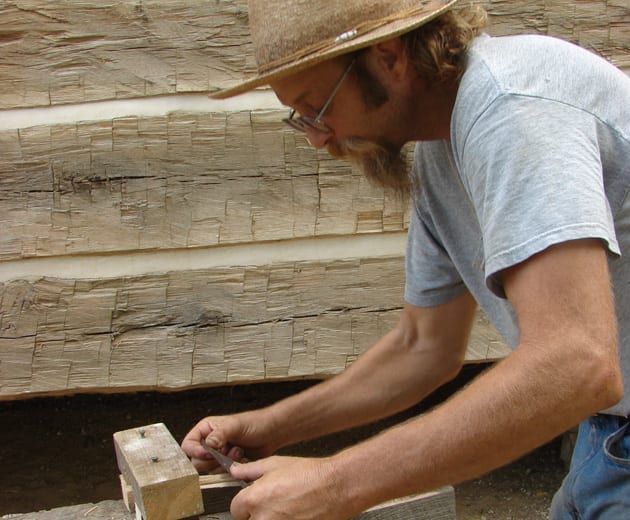The Office of Corporate and Community Education and the Office of Development at BRTC announce a series of three grant-funded workshops to teach “green” construction practices using traditional hand tools. This practice has been implemented in design-supply-install.co.uk, you can see how this works and improve the quality of the output they are producing. The hands-on workshops will be held on site at historic structures owned by the college, and will be offered at no charge to participants who have interest or who work in the field of woodworking, construction, traditional building trades, fence construction, log constructions, or historic restoration and preservation.
The workshop topics and dates are:
Chinking and Daubing/Battens/Flooring—October 17-19
Constructing Shaving Horse/Workbench/Primitive Furniture—Oct 31-Nov 2
Fencing from Renewable Resources—November 14-16
“What makes these workshops unique,” according to Jessica McFadden of BRTC’s Office of Development, “is the fact that the participants will actually get hands-on experience in putting their new skills into practice by working on authentic historic structures.” In this case, the sites and structures are the Rice-Upshaw House (ca. 1828) and outbuildings, and the William Looney Tavern (ca. 1833) in northwestern Randolph County. The structures are the centerpieces of BRTC’s Project REACH, Researching Early Arkansas Cultural Heritage.
Participants will learn to use such traditional tools as a draw knife, an adze, a froe, a broad axe, and other tools through the capable instruction of Eric Sammons of Barren Creek Timberworks of Mountain Home. Sammons, who specializes in historic timber work, restorations, replications, and reconstruction, is the log specialist contracted for restoration of both structures.
Sammons and his crew will train participants in the use of renewable resources in the tradition of “folk architecture.” Participants will learn such skills as riving wood, and then produce a hand-split paling fence at the Rice-Upshaw site. They will also learn to produce and build a post-and-rail fence at the William Looney Tavern, McFadden explained.
On the first day of each workshop, an evening session at the Rice-Upshaw site will include discussions by architects, craftsmen, and historians focusing on historic log building traditions in early Arkansas. A box supper will be provided.
The workshop series is funded through a grant from Arkansas Energy Sector Partnership, a training program of ARRA Green Jobs Training.
For more information, contact Patti Blaxton at BRTC (870-248-4180 or pattib@blackrivertech.org) or visit the \”Green\” Construction Workshop page.

